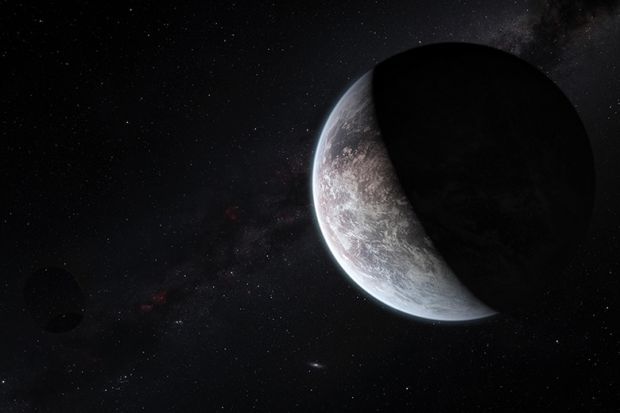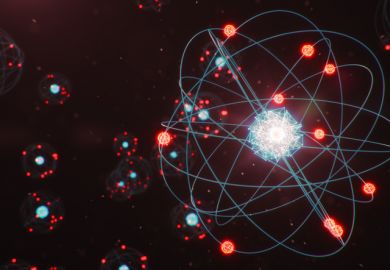Three scientists have been awarded the Nobel Prize in Physics for furthering our understanding of the universe.
James Peebles, Albert Einstein professor of science at Princeton University, was awarded the prize “for theoretical discoveries in physical cosmology”, while Swiss duo Michel Mayor and Didier Queloz, both based at the University of Geneva, were recognised “for the discovery of an exoplanet orbiting a solar-type star”.
At a ceremony in Stockholm on 8 October, the Nobel committee said this year’s physics prize “rewards new understanding of the universe’s structure and history, and the first discovery of a planet orbiting a solar-type star outside our solar system”.
Professor Peebles, a Canadian-born scientist who has been at Princeton for his entire academic career, was awarded a half-share of the SKr9 million (£744,000) prize for what the committee described as “insights into physical cosmology [that] have enriched the entire field of research and laid a foundation for the transformation of cosmology over the last fifty years, from speculation to science”.
“His theoretical framework, developed since the mid-1960s, is the basis of our contemporary ideas about the universe,” it added.
Professor Peebles’ work has helped to explain the evolution of the universe after the Big Bang, almost 14 billion years ago, including how traces of ancient radiation from that event can be interpreted and used to discover new physical processes.
Professor Mayor and Professor Queloz – the latter of whom is also attached to the University of Cambridge – are recognised for their discovery of planet 51 Pegasi b, a gaseous ball comparable in size and formation to Jupiter, which exists in the Milky Way beyond the solar system.
This discovery started a revolution in astronomy, and more than 4,000 exoplanets have since been found in the Milky Way, the Nobel committee said.
It added that the discovery of these “strange new worlds…with an incredible wealth of sizes, forms and orbits” had challenged preconceived ideas about planetary systems and was forcing scientists to revise their theories of the physical processes behind the origins of planets.
“This year’s laureates have transformed our ideas about the cosmos,” the committee said. “While James Peebles’ theoretical discoveries contributed to our understanding of how the universe evolved after the Big Bang, Michel Mayor and Didier Queloz explored our cosmic neighbourhoods on the hunt for unknown planets.
“Their discoveries have forever changed our conceptions of the world.”




